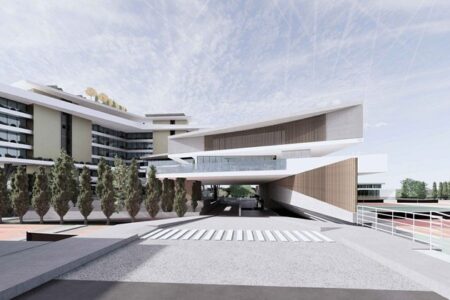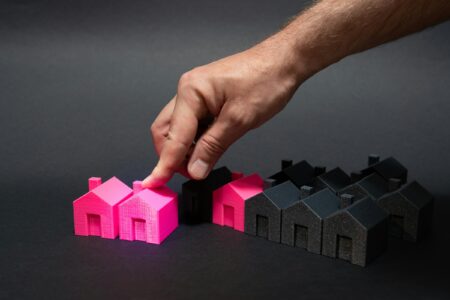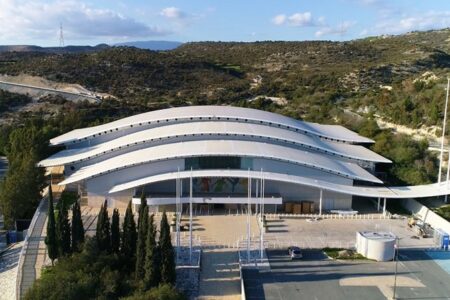12.02.2022
The EU directive to reduce the size of houses eligible for a 5% VAT reduction threatens the recovery of the construction sector and the economy, real estate experts say.
Under a recent EU directive, member states are required to introduce a law on a 5% VAT rate on houses up to 140 square meters.
In Cyprus, a reduced VAT rate of 5% applies to houses up to 200 sq.m. The directive has already been approved by the cabinet and needs the approval of parliament, but MPs do not seem to want to pass the bill as it is. Opposition parties have identified weaknesses in the bill, calling it “problematic”, while the ruling party has said it is ready to look for ways to improve the law. A grace period could be introduced to allow the real estate industry to adapt.
According to the new law, houses with an area of more than 140 square meters. m are subject to the standard VAT rate of 19% for each square meter in excess of the limit. But a house over 200 square meters will not be eligible for the lower 5% VAT rate, but will instead incur 19% for the entire project. This is currently applicable for homes larger than 275 square meters.
Stakeholders warn that the new directive will further increase the cost of buying a home at a time when rising building material prices are pushing up construction costs.
In his comment, Stelios Gavriel, Chairman of the Federation of Construction Contractors Associations of Cyprus (OSEOK), said developers are worried about the latest developments as they are another blow to the industry.He argued that since the closure of the Citizenship by Investment scheme, the industry has held onto the growing demand for housing projects for Cypriots.
“However, the industry received a second blow from the pandemic, which froze many projects, but faced a sharp increase in the prices of building materials,” said Gavriel.
According to the Statistical Office of Cyprus, there was a widespread rise in prices in 2021, resulting in a 10.98% increase in the total cost of construction compared to 2020.
Compared to 2019 before the coronavirus, total construction costs rose by 10.51%. Basic commodities such as steel, cement, sand, stone aggregates and wood-based materials have risen in price significantly in recent times. According to CyStat, the building materials with the biggest price increases are construction steel, which saw prices rise by a whopping 46.56% last year.
“Building costs are at least 20% more expensive today, following the recent rise in diesel prices, and the increase in the cost of transporting raw materials has caused a domino effect on every material used in the construction industry.”
He said the proposed increase does not take into account the increase in material costs that are associated with new building energy efficiency regulations. “When added, costs increase by 25%.”
Young couples
Gavriel argued that the reduced VAT rate for homes up to 140 square meters would only make life harder for local homebuyers. “Most people in the housing market are young couples who want to start a family. They are not buyers who would not be put off by such an increase. Unfortunately, these are people who will have to take out loans.” He explained that the increase in the cost of building materials and the increase in VAT would make it harder for couples to get a loan. “In addition, since this change will take effect from the moment it is passed, this means that couples who have already taken out loans will be several thousand euros in the red.” Gavriel added that many couples have already drawn plans for houses up to 200 square meters; with a change, they will have to be redrawn.
Many projects will be frozen, and developers will face financial difficulties, which will lead to massive layoffs and rising unemployment in Cyprus.
The chairman of the Cyprus Technical Chamber (ETEK), Konstantinos Constanti, said the couple, who are building a 201 sq. m, will pay an additional 42,000 euros. “Under the current conditions, the average cost of building such a house will be about 315,000 euros, while VAT payable will be about 15,000 euros. “If the directive is passed, couples will be asked to pay €42,000 on top of the original €15,000,” Constanti said. He argued that a change in housing VAT laws would cause many couples to put their dream of owning their own home on hold. “Young couples are left with limited choices as rental prices have skyrocketed in recent years.“You can rent a decent apartment in Limassol for a family from 1000 to 1500 euros, and in Nicosia the rent starts from 700 euros.”
Constanti acknowledged that the options are limited. “The only thing that the deputies could do is to agree on the ceiling of the area, which will be subject to the reduced VAT rate. “This is an increase to 170 square meters, the implementation of the EU directive by half, a decrease from today’s mark of 200 square meters. “Another thing that could be done is to introduce this reduced VAT on new houses for renovation, offering families the opportunity to buy a small old house and renovate it at a lower price.”
Constanti argued that lawmakers and authorities should stop negotiations with the EU on this issue.
“We are sure that the EU does not want to violate the structure and living conditions of the Cypriot family. Brussels’ main task is to prevent wealthy buyers from abusing housing incentives for low-income segments of the population. In Cyprus we have a share of high net worth investors buying apartments up to 200 square meters enjoying the 5% VAT rate. But that’s in the past now.”
















